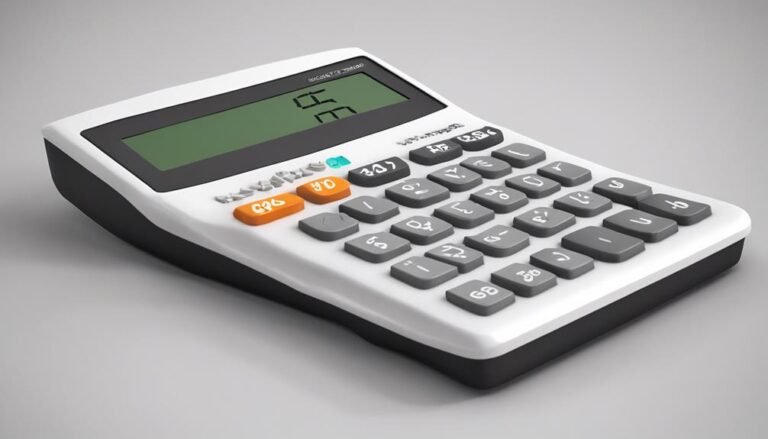Credit Card: What It Is, How It Works, and How to Get One
Credit cards offer a convenient payment method with incentives like cash back and rewards. They have security features like chip technology and fraud protection. When applying, meet income and credit score requirements, and await a decision from the issuer. Understanding terms like APR and credit limits is essential for effective financial management. Benefits include cash back rewards, travel perks, and fraud protection. Managing credit card debt involves financial responsibility, debt consolidation, and budgeting strategies. Improving your credit score with a credit card requires credit utilization, timely payments, and strategic planning. Exploring these topics further can enhance financial knowledge and decision-making.
Key Takeaways
- Credit cards offer convenient payment methods with benefits like cash back and rewards.
- Security features like chip technology and biometric authentication protect against fraud.
- To get a credit card, meet income and credit score requirements, submit an accurate application.
- Understand credit card terms like APR, credit limit, and benefits for effective financial management.
- Manage credit card debt responsibly through budgeting, consolidation, and prioritizing payments to improve financial health.
Credit Card Definition
The concept of a credit card revolves around providing consumers with a convenient and widely accepted method of payment for goods and services by allowing them to access a line of credit extended by financial institutions.
Credit cards come in various types, including major ones like Visa, Mastercard, Discover, and American Express, issued by different financial entities. These cards offer incentives such as cash back, rewards, or discounts to attract users.
The credit card limits, which determine the maximum amount a cardholder can borrow at any given time, vary based on individual creditworthiness and the type of card. Understanding the different credit card types and limits is essential for consumers to make informed decisions regarding their spending and borrowing capabilities.
Credit Card Functionality
Understanding how credit cards function in everyday transactions is essential to managing your finances effectively and maximizing the benefits they offer. Credit card security is a vital aspect, with advancements in credit card technology enhancing protection against fraud and theft.
Chip-enabled cards, tokenization, and biometric authentication are some of the technologies employed to secure transactions. These measures aim to safeguard cardholder information and prevent unauthorized use. Additionally, features like real-time transaction alerts and two-factor authentication further bolster security.
Applying for a Credit Card
When considering applying for a credit card, it is crucial to assess your financial situation and goals carefully. To navigate the credit card application process effectively, consider the following:
- Credit Card Eligibility Requirements:
- Review the minimum income requirements set by the card issuer.
- Check your credit score to confirm it meets the card issuer's criteria.
- Understand any age restrictions imposed by the issuer.
- Credit Card Application Process:
- Fill out the application form accurately with personal and financial details.
- Submit necessary documents such as proof of income and identification.
- Await the issuer's decision on your application, which may take a few days to weeks.
Understanding Credit Card Terms
To comprehend the nuances of credit card agreements, it is important to dissect the intricacies of the terms and conditions governing these financial instruments. When considering a credit card, two critical factors to understand are APR calculation and credit limit considerations. The APR, or Annual Percentage Rate, reflects the cost of borrowing on the card, including interest and fees. It's essential to know whether the APR is fixed or variable and how it is calculated to make informed financial decisions. Additionally, credit limit considerations are crucial as they determine the maximum amount you can borrow on the card. Understanding these terms can help cardholders manage their finances effectively and avoid unnecessary debt.
| Aspect | Description | Importance |
|---|---|---|
| APR Calculation | Fixed or variable rates; how interest and fees are computed. | Understanding costs |
| Credit Limit Considerations | Maximum amount that can be borrowed on the card; impacts purchasing power and debt management. | Setting financial limits |
Benefits of Having a Credit Card
Having a credit card offers numerous advantages that extend beyond just the convenience of making purchases. When considering the benefits of having a credit card, individuals can enjoy:
- Cash Back Rewards: Many credit cards offer cash back rewards on purchases, allowing cardholders to earn a percentage of their spending back in cash.
- Travel Perks: Some credit cards provide travel perks such as airline miles, hotel discounts, or access to airport lounges, making travel more affordable and enjoyable.
- Fraud Protection: Credit cards often come with robust fraud protection measures, offering consumers greater security and peace of mind when making transactions.
These benefits make credit cards a valuable financial tool for those who can manage their spending responsibly.
Managing Credit Card Debt
Moving from the benefits of having a credit card to the practical domain of financial responsibility, managing credit card debt is a critical aspect of maintaining a healthy financial profile. Debt consolidation can be a useful strategy for individuals facing multiple credit card debts by combining them into a single, more manageable payment.
Budgeting strategies play a key role in managing credit card debt effectively, such as creating a detailed budget, tracking expenses, and prioritizing debt repayment. Setting aside a specific portion of income for debt payments can prevent overspending and help individuals stay on track with their financial goals.
Improving Credit Score With Credit Card
Improving one's credit score through strategic credit card management is a key element in enhancing overall financial health and credibility. To boost your credit score effectively, consider the following:
- Credit Utilization: Aim to keep your credit card balances low in comparison to your credit limits. High credit utilization ratios can negatively impact your credit score.
- Timely Payments: Pay your credit card bills on time to demonstrate responsible financial behavior and build a positive credit history.
- Credit Limit: Requesting a higher credit limit or using only a small portion of your available credit can improve your credit utilization ratio and positively impact your credit score.
Conclusion
To sum up, credit cards serve as indispensable tools for managing financial transactions and building credit history. Understanding the nuances of credit card functionality, terms, and benefits is vital for making informed financial decisions.
By effectively managing credit card debt and utilizing credit cards responsibly, individuals can improve their credit scores and secure their financial future. Embracing the opportunities that credit cards offer can pave the way for financial stability and empowerment.







